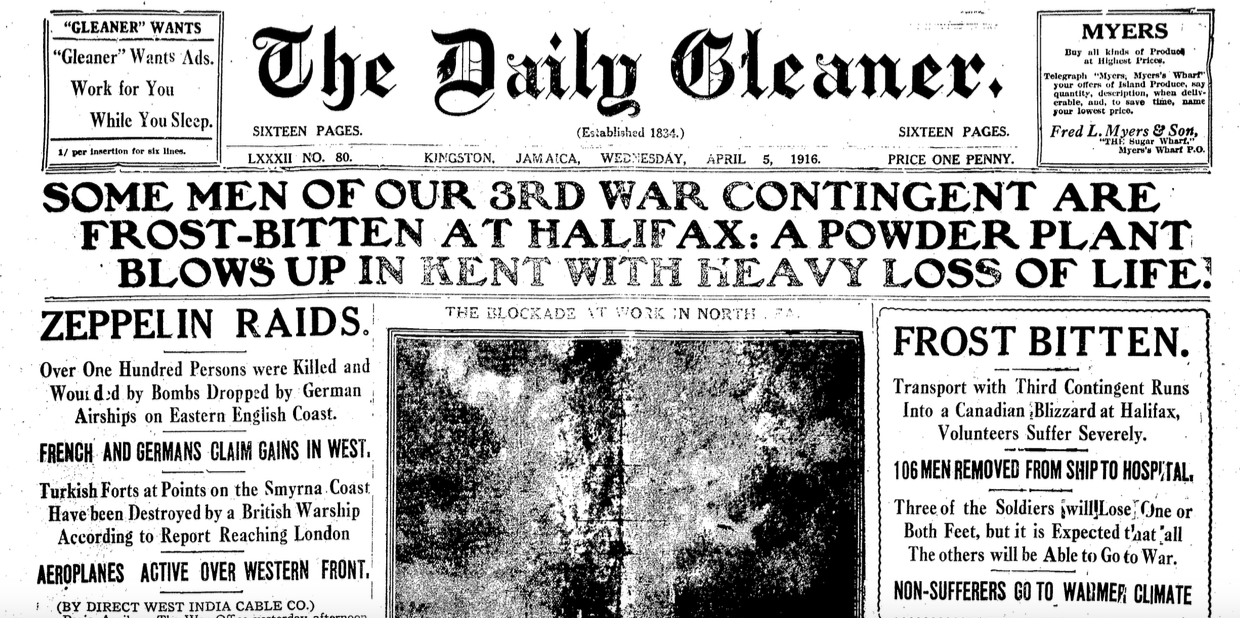The Halifax Incident

The SS Verdala was a troop transport ship that carried several contingents of West Indian soldiers to Britain. However, its most infamous crossing was when it carried the Third Jamaican Contingent.
It left Jamaica on the 6th March 1916 carrying 1,140 volunteers but was forced to divert from its planned course across the Atlantic in order to avoid enemy submarines. It headed northwards to Nova Scotia and it was here that, due to a combination of a blizzard, a lack of appropriate winter clothing and a lack of heating on board that over 600 members of the contingent developed hypothermia and frostbite. This resulted in over 100 of them having to have limbs amputated in Halifax, Nova Scotia, whilst 5 men died due to the extreme cold. The event came to be known as the Halifax Incident thereafter.
A lot of anger was generated in the West Indies over this incident, as there was a strong conviction that adequate care and suitable provisions had not been provided for the men during the crossing. This severely hampered recruitment efforts and meant that the next contingent was not ready to leave until 30th September that year. In comparison, there was only a two month gap between the departure of the First Contingent and that of the Second and the same between the departures of the Second and the Third.